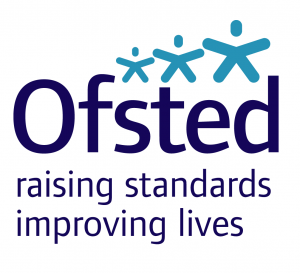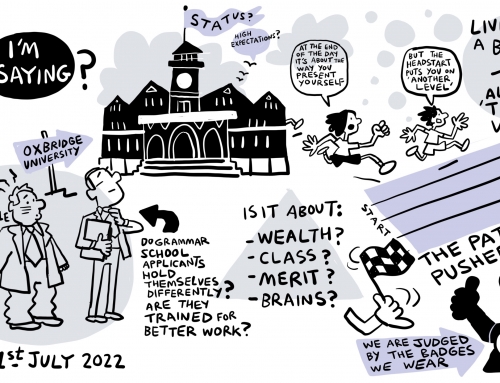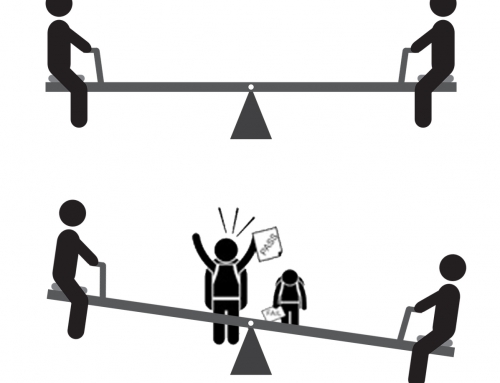 Ofsted are supposed to be an independent force for good in education, but they are harming our school system through their failure to enter the selection debate.
Ofsted are supposed to be an independent force for good in education, but they are harming our school system through their failure to enter the selection debate.
In the recent push to create new grammar schools Theresa May used Ofsted ratings as evidence she should expand selection. It was regularly reported that 82% of selective schools are rated ‘Outstanding’ compared to 20% of non-selective secondary schools. If our schools inspectorate are showing the government that selection is the best way to make great schools, why wouldn’t it be logical for politicians to expand grammars?
So did Ofsted pipe up and say ‘yes, but this isn’t the full story…’ No, of course they didn’t. Did Ofsted produce a report looking at the overall impact of selection on school communities? Obviously not. Did they use their Parent Panel to look at how school choice feels for parents in 11-plus areas? Nope. Produce a report analysing differences between secondary moderns and schools with a balanced ability profile? Or suggest Ofsted ratings for grammar schools need closer scrutiny? Or maybe suggest we also need to consider ratings for non-selective schools in selective areas? No – probably because Ofsted don’t even collate ratings for secondary moderns!
Ofsted are happy for politicians to boast about the stats for selective schools, but they don’t even accept secondary moderns are a ‘thing.’ I’ve asked for ratings for secondary moderns but have been told they don’t report on non-selective schools in selective areas. I’ve written to Ofsted to suggest ratings for secondary moderns matter, but the reply avoided my point.
Not only do Ofsted tell politicians that grammar schools are the best type of school, they make parents believe this too. Ofsted are responsible for wasting parents cash on tutors, worrying parents about school choice, and promoting the idea that the best schools can’t educate every child.
I’m based in Kent where Ofsted stick an ‘Outstanding’ label on the vast majority of our county’s 32 grammar schools, while only 3 of our county’s 68 non-selective schools achieve this top rating. What message does this send to parents? That selective schools are superior to the rest.
Of course every parent wants the best school for their child, and Ofsted say the best schools require an 11-plus pass. If Ofsted say an all-ability education isn’t so great, what do they expect parents to do? Thirty percent of Kent children attend grammar schools so an 11-plus pass is within reach of many children. Everyone believes paying for a tutor maximises a child’s chances of passing the 11-plus. Ofsted should foot the bill for all the parents spending tutoring cash to win an ‘Outstanding’ school!
I’m not qualified to judge whether grammar schools really are great schools, but I think Ofsted should consider the human cost of creating a ratings hierarchy with grammars at the top. Any child who fails the 11-plus feels disappointment and worries they’ve let their parents down. They’ve toured all the schools and know 11-plus ‘winners’ attend the schools with the ‘Outstanding’ banners on the railings. It’s equally clear that the test ‘losers’ get the second best education. Our schools inspectorate make a bad situation worse for children in Kent.
Ofsted doesn’t seem to care about any of this. Their guiding principle claims they are, ‘A force for improvement through intelligent, responsible and focused inspection and regulation.’ So how does this fit with selection and school ratings? They passively look on while grammar school ratings drive politicians to expand selection, I don’t see this as ‘a force for improvement.’ Ofsted neglect to look at ratings for secondary moderns schools at all, this doesn’t seem ‘intelligent’ to me. They fail to consider the impact of selective school ratings on parental behaviour, this is hardly ‘responsible’.
I sometimes speak to politicians about selective education, and they are wary about changing our “best” schools. Ofsted give grammar schools higher ratings than any other type of school, and this protects them. How can Kent politicians argue that comprehensive education is better, when the Ofsted ‘experts’ show via school ratings that mixed ability education means “worse” schools?
There are 12 Local Authorities where at least 25% of pupils attend selective schools. Ofsted’s lazy reporting for selective areas is simply ‘’X% of secondary schools are good or better’ without even noting the fact most parents can’t use a quarter of local secondary schools. Kent County Council regularly use Ofsteds statistic to boast about the quality of their secondary provision. In selective areas school options vary drastically between children who pass or fail a test. Yet Ofsted is complicit in disguising this fact. They give local politicians an easy stat to boast about, and it never gets challenged.
Ofsted look away from the problems of selection, but if they stay silent then grammar school places will expand “because they’re Outstanding schools!” If the Conservatives win the next election we might well get a new generation of grammar schools, “because they’re Outstanding schools!”
Ofsted are villains in my eyes. They are making life harder for everyone who believes outstanding education is not about turning pupils away from a school. Ofsted may not even realise it, but everything they do makes it more likely we’ll divide children with an 11-plus test for decades to come. If Ofsted truly wants to be a ‘force for improvement’ they should stop being cheerleaders for grammar schools and talk about the problems of selection.
Joanne Bartley is the joint co-ordinator of the Kent Education Network and Campaign Support Officer for Comprehensive Future. She is writing this in her personal capacity.




